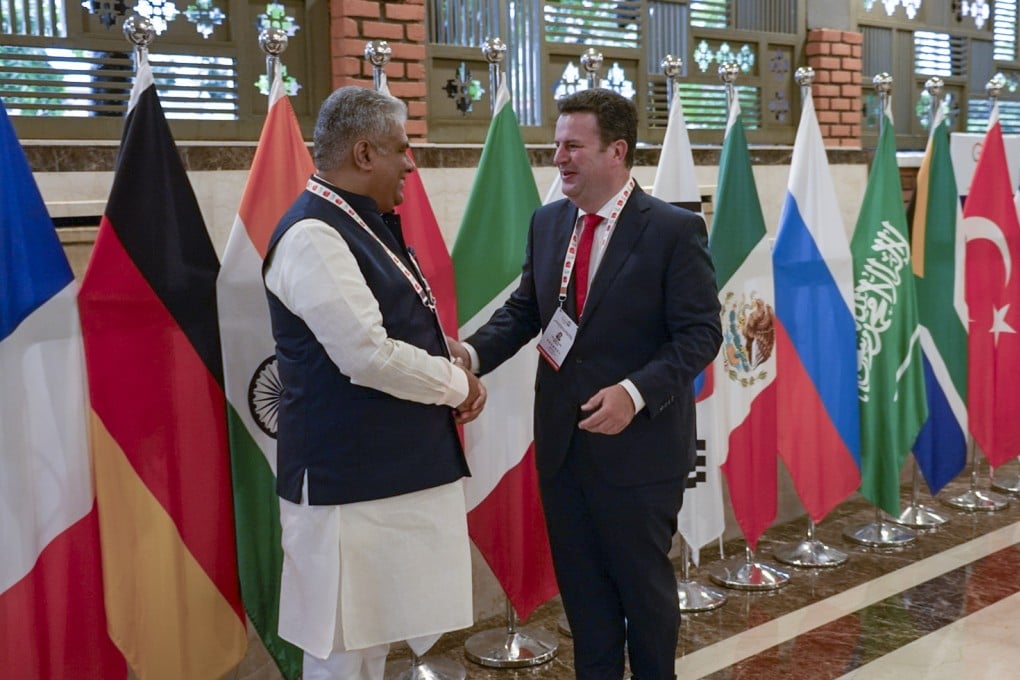Advertisement
G20 energy ministers fail to agree on road map to phase down use of fossil fuels
- In May, G7 leaders agreed in Hiroshima, Japan to ‘accelerate the phase-out of unabated fossil fuels’
- A final statement after the meeting in Goa, India on Saturday did not even mention coal, a major contributor to global warming
Reading Time:2 minutes
Why you can trust SCMP
6

Energy ministers from the Group of 20 nations (G20) meeting in Goa, India on Saturday failed to agree on a road map to phase down the use of fossil fuels in the global energy mix.
A final statement after the meeting did not even mention coal, a major contributor to global warming.
The dirty fuel is also a key energy source for many developing economies such as India – the world’s most-populous country – and China, the world’s second-largest economy.

Campaigners were dismayed by the failure to reach agreement in Goa on COP (Conference of the Parties) goals including tripling the world’s renewable capacity and doubling energy efficiency by 2030.
Advertisement
It came despite G7 (Group of Seven) leaders agreeing in Hiroshima, Japan in May to “accelerate the phase-out of unabated fossil fuels”.
Global temperatures are hitting record highs, triggering floods, storms and heatwaves.
Advertisement
Explaining the stalemate, G20 president India said that some members had emphasised the importance of seeking a “phase down of unabated fossil fuels, in line with different national circumstances”.
But “others had different views on the matter that abatement and removal technologies will address such concerns,” it added.
Advertisement
Select Voice
Select Speed
1.00x